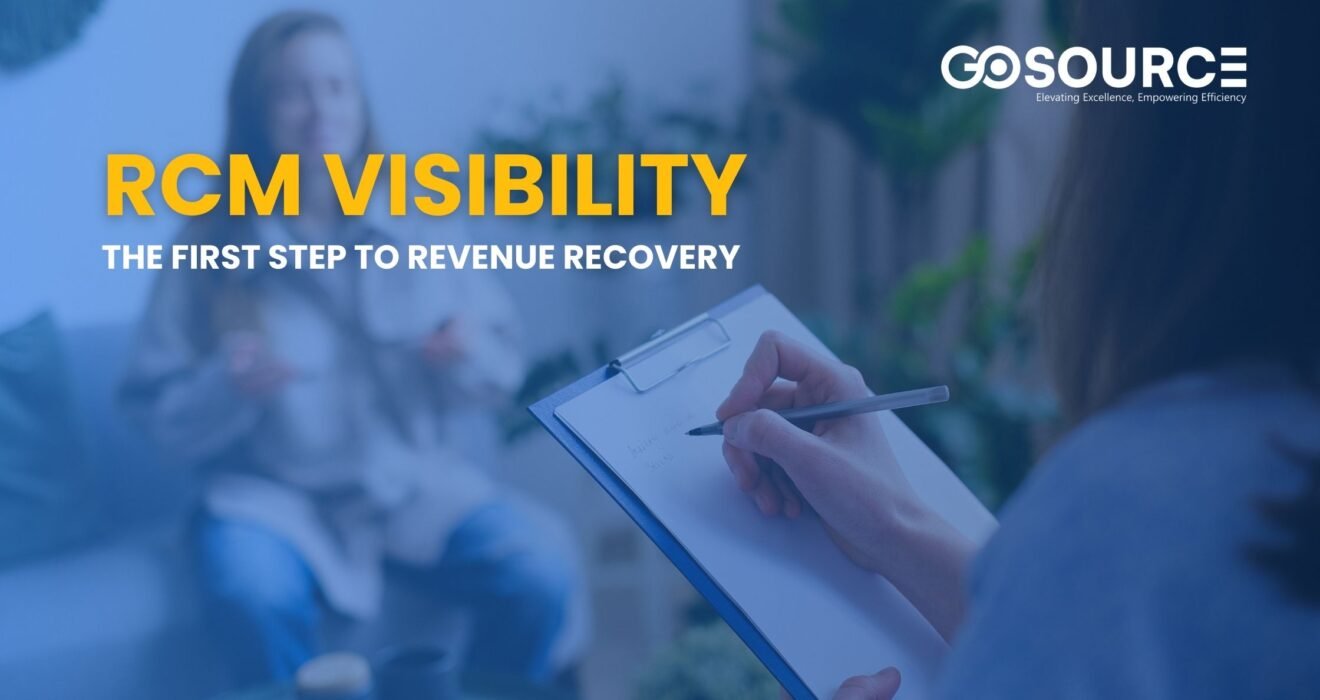Why Visibility is the First Step to Fixing RCM in Mental Health Practices
In an industry where margins are thin and administrative complexities are high, mental health practices can no longer afford to fly blind when it comes to their revenue cycle management (RCM).
While many clinics invest in EHRs, schedulers, and even billing teams, very few have access to the one thing that determines whether they are growing or leaking revenue: real-time visibility into their RCM data.
Table of Contents
ToggleThe Problem: Lack of Visibility Is Costing You More Than You Think
It’s not uncommon for clinics to realize, months too late that they’ve been losing thousands of dollars to repeat denials, unworked claims, or missing modifiers.
In our experience, the average mental health practice loses 5–10% of potential revenue each month due to preventable billing errors that remain hidden for too long. Why?
Because they don’t know:
- Which CPT codes are triggering denials
- Which therapists have higher rejection rates
- What modifiers are most commonly causing issues
- How long claims are sitting in A/R buckets
- How many denials are never followed up on
📌 Related Insight: The American Medical Association (AMA) offers updated CPT coding guidelines which can help providers avoid common coding errors that lead to denials.
What Visibility Really Means in RCM?
Visibility doesn’t just mean access to monthly reports or broad overviews. True visibility means drill-down insights that help you answer key questions in real time:
Are certain therapists consistently underperforming in collections?
Are specific codes (e.g., 90834, 90837) getting denied more than others?
Are denials due to front-desk errors, provider documentation, or payer rules?
Is your billing team prioritizing the right follow-ups?
Without that level of detail, your RCM becomes reactive, you’re fixing revenue problems after the damage is already done.
How Visibility Translates into Action (and Growth)?
Once you see the patterns, you can fix them.
For example, one clinic we partnered with discovered a denial spike on 90791 and 90837 codes due to inconsistent documentation of time. A quick provider training and note template adjustment reduced those denials by 74% in just one month.
Another clinic noticed that claims from one provider were consistently submitted with the wrong modifier. That insight led to one-on-one training and automated billing rules, improving first-pass resolution rates by 17%.
These improvements only happened because leadership had line-of-sight into what was really going on.
The Role of Technology and Reporting Tools
To gain real RCM visibility, clinics need tools and partners that can:
- Aggregate data across therapists, codes, and payers
- Flag patterns before they become trends
- Deliver real-time dashboards and not just static reports
- Offer actionable insights, not just information
Technology like AI-driven RCM analytics and custom dashboards built for behavioral health practices can change the game. Combined with a knowledgeable billing team, this visibility leads to:
- Faster reimbursements
- Lower denial rates
- Improved therapist accountability
- Informed decision-making at the leadership level
Visibility Is a Culture Shift, Not Just a Metric
When practices build a culture of transparency around billing performance, it does more than fix claims it aligns teams. Therapists understand how documentation affects revenue. Front-desk staff see how scheduling errors impact cash flow. Billers feel empowered to recommend changes instead of just cleaning up messes.
Conclusion: You Can’t Optimize What You Can’t See
In mental health RCM, visibility is not a luxury, it’s a requirement for survival and growth.
If your clinic doesn’t have access to denial data by CPT code, therapist-level collections, or real-time rejection reasons, it’s time to ask: what is it costing you?
Because behind every untracked claim or unmonitored denial is money left on the table and progress left behind.
Need help gaining visibility into your RCM? Talk to our RCM experts and learn how GoSourceMD can help you stop guessing and start growing.


